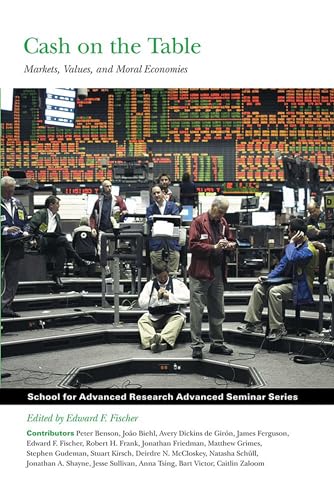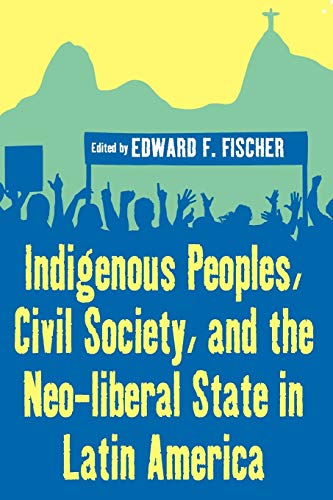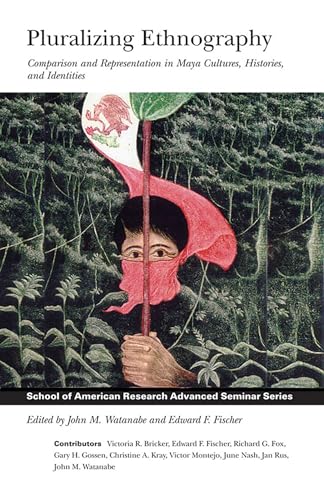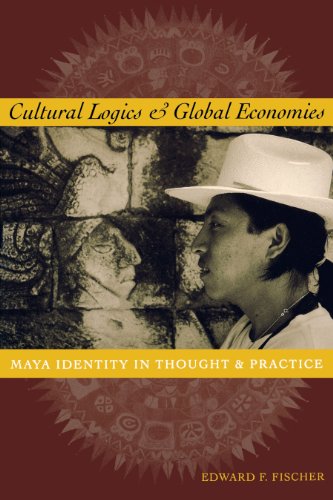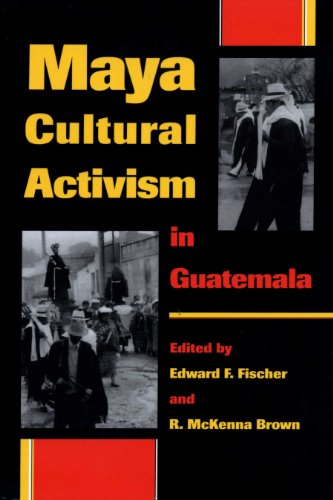Books by Edward Fischer
The Good Life: Aspiration, Dignity, and the Anthropology of Wellbeing
Author(s): Edward F. Fischer
Publication date: 2014-10-01
ISBN: 0804792534, ISBN-13: 9780804792530
In The Good Life, Edward Fischer examines wellbeing in very different cultural contexts to uncover shared notions of the good life and how best to achieve it. With fascinating on-the-ground narratives of Germans' choices regarding the purchase of eggs and cars, and Guatemalans' trade in coffee and cocaine, Fischer presents a richly layered understanding of how aspiration, opportunity, dignity, and purpose comprise the good life.
Cash on the Table: Markets, Values, and Moral Economies (School for Advanced Research Advanced Seminar Series)
Author(s): Edward F. Fischer
Publication date: 2014-02-12
ISBN: 1938645006, ISBN-13: 9781938645006
A great deal is at stake in understanding the moral dimensions of economic behavior and markets. Public debates over executive compensation, the fair trade movement, and recent academic inquiries into the limitations of rational-choice paradigms all point to the relevance of moral values in our economic decision-making processes. Moral values inform economic behavior. On its face, this proposition is unassailable. Think of the often spiritual appeal of consumer goods or the value-laden stakes of upward or downward mobility. Consider the central role that moral questions regarding poverty, access to health care, the tax code, property and land rights, and corruption play in the shaping of modern governments, societies, and social movements. Ponder the meaning of fair trade coffee and organic produce as well as Walmart's everyday low prices. The moral aspects of the marketplace have never been so contentious or consequential; however, the realm of economics is often treated as a world unto itself, a domain where human behavior is guided not by emotions, beliefs, moralities, or the passions that fascinate anthropologists but by the hard fact of rational choices.
Anthropologists have historically tended to focus on the corrosive effects of markets on traditional lifeways and the ways in which global markets disadvantage marginalized peoples. Economists often have difficulty recognizing that markets are embedded in particular social and political power structures and that "free" market transactions are often less free than we might think. If anthropologists could view markets a bit more ecumenically and if economists could view them a bit more politically, then great value--cash on the table--could be found in bringing these perspectives together.
Indigenous Peoples, Civil Society, and the Neo-liberal State in Latin America
Author(s): Edward F. Fischer
Publication date: 2008-10-30
ISBN: 1845455975, ISBN-13: 9781845455972
In recent years the concept and study of "civil society" has received a lot of attention from political scientists, economists, and sociologists, but less so from anthropologists. A ground-breaking ethnographic approach to civil society as it is formed in indigenous communities in Latin America, this volume explores the multiple potentialities of civil society's growth and critically assesses the potential for sustained change. Much recent literature has focused on the remarkable gains made by civil society and the chapters in this volume reinforce this trend while also showing the complexity of civil society - that civil society can itself sometimes be uncivil. In doing so, these insightful contributions speak not only to Latin American area studies but also to the changing shape of global systems of political economy in general.
Broccoli and Desire: Global Connections and Maya Struggles in Postwar Guatemala
Author(s): Edward F. Fischer, Peter Benson
Publication date: 2006-06-21
ISBN: 0804754845, ISBN-13: 9780804754842
Compelling life stories and rich descriptions from ethnographic fieldwork among supermarket shoppers in Nashville, Tennessee and Maya farmers in highland Guatemala bring the commodity chain of this seemingly mundane product to life. For affluent Americans, broccoli fits into everyday concerns about eating right, being healthy, staying in shape, and valuing natural foods. For Maya farmers, this new export crop provides an opportunity to make a little extra money in difficult, often risky circumstances. Unbeknownst to each other, the American consumer and the Maya farmer are bound together in webs of desire and material production.
Pluralizing Ethnography: Comparison and Representation in Maya Cultures, Histories, and Identities (School for Advanced Research Advanced Seminar Series)
Author(s): John M. Watanabe, Edward F. Fischer
Publication date: 2004-04-15
ISBN: 1930618360, ISBN-13: 9781930618367
This volume brings together eight Maya specialists and a prominent anthropological theorist as discussant to assess the contrasting historical circumstances and emerging cultural futures of Maya in Mexico and Guatemala. Rather than presume a romanticized, timeless Maya culture-or the globalized predicaments of transnationalized Maya imaginings-this seminar took its cue from contemporary Maya cultural activists who derive their enduring sense of Mayan-ness from a historical consciousness of five hundred years of cultural resilience. The contributors evaluate the history of Maya peoples and Maya anthropology by examining language, religion, political attitudes and activism, ethnographic traditions, and the relationship between economic change, migration, and cultural identity.
In comparing Maya peoples across Mexico and Guatemala, the contributors' emphasis on culture recovers intermediate linkages between the personal and the political, the local and the global. Their work enables a controlled cross-cultural comparison across national boundaries and histories that in turn illuminates the articulation between locally constructed meanings and global transformations.
Tecpan Guatemala: A Modern Maya Town In Global And Local Context (Westview Case Studies in Anthropology)
Author(s): Edward F Fischer, Carol Hendrickson
Publication date: 2002-08-13
ISBN: 0813337224, ISBN-13: 9780813337227
Cultural Logics and Global Economies: Maya Identity in Thought and Practice
Author(s): Edward F. Fischer
Publication date: 2002-01-15
ISBN: 0292725345, ISBN-13: 9780292725348
Winner, A Choice Outstanding Academic Book, 2002
As ideas, goods, and people move with increasing ease and speed across national boundaries and geographic distances, the economic changes and technological advances that enable this globalization are also paradoxically contributing to the balkanization of states, ethnic groups, and special interest movements. Exploring how this process is playing out in Guatemala, this book presents an innovative synthesis of the local and global factors that have led Guatemala's indigenous Maya peoples to assert and defend their cultural identity and distinctiveness within the dominant Hispanic society.
Drawing on recent theories from cognitive studies, interpretive ethnography, and political economy, Edward F. Fischer looks at individual Maya activists and local cultures, as well as changing national and international power relations, to understand how ethnic identities are constructed and expressed in the modern world. At the global level, he shows how structural shifts in international relations have opened new venues of ethnic expression for Guatemala's majority Maya population. At the local level, he examines the processes of identity construction in two Kaqchikel Maya towns, Tecpán and Patzún, and shows how divergent local norms result in different conceptions and expressions of Maya-ness, which nonetheless share certain fundamental similarities with the larger pan-Maya project. Tying these levels of analysis together, Fischer argues that open-ended Maya "cultural logics" condition the ways in which Maya individuals (national leaders and rural masses alike) creatively express their identity in a rapidly changing world.
Maya Cultural Activism in Guatemala (Critical Reflections on Latin America Series)
Author(s): Edward F. Fischer, R. McKenna Brown
Publication date: 1997-01-01
ISBN: 0292708513, ISBN-13: 9780292708518
Maya Cultural Activism in Guatemala marks a new era in Guatemalan studies by offering an up-to-the-minute look at the pan-Maya movement and the future of the Maya people as they struggle to regain control over their cultural destiny. The successful emergence of what is in some senses a nationalism grounded in ethnicity and language has challenged scholars to reconsider their concepts of nationalism, community, and identity.
Editors Edward F. Fischer and R. McKenna Brown have brought together essays by virtually all the leading U.S. experts on contemporary Maya communities and the top Maya scholars working in Guatemala today. Supplementing scholarly analysis of Mayan cultural activism is a position statement originating within the movement and more wide-ranging and personal reflections by anthropologists and linguists who have worked with the Maya over the years. Among the broader issues that come in for examination are the complex relations between U.S. Mayanists and the Mayan cultural movement, efforts to promote literacy in Mayan languages, the significance of woven textiles and native dress, the relations between language and national identity, and the cultural meanings that the present-day Maya have encountered in ancient Mayan texts and hieroglyphic writing.
Of Rage and Redemption: The Art of Oswaldo Guayasamin
Author(s): Oswaldo Guayasamin, Joseph S. Mella, Carlos A. Jauregui, Edward F. Fischer
Publication date: 0000-00-00
ISBN: 0615187013, ISBN-13: 9780615187013
Most popular books
Link to this page using the following URL: https://www.facultybookshelf.org/author/edward_fischer

